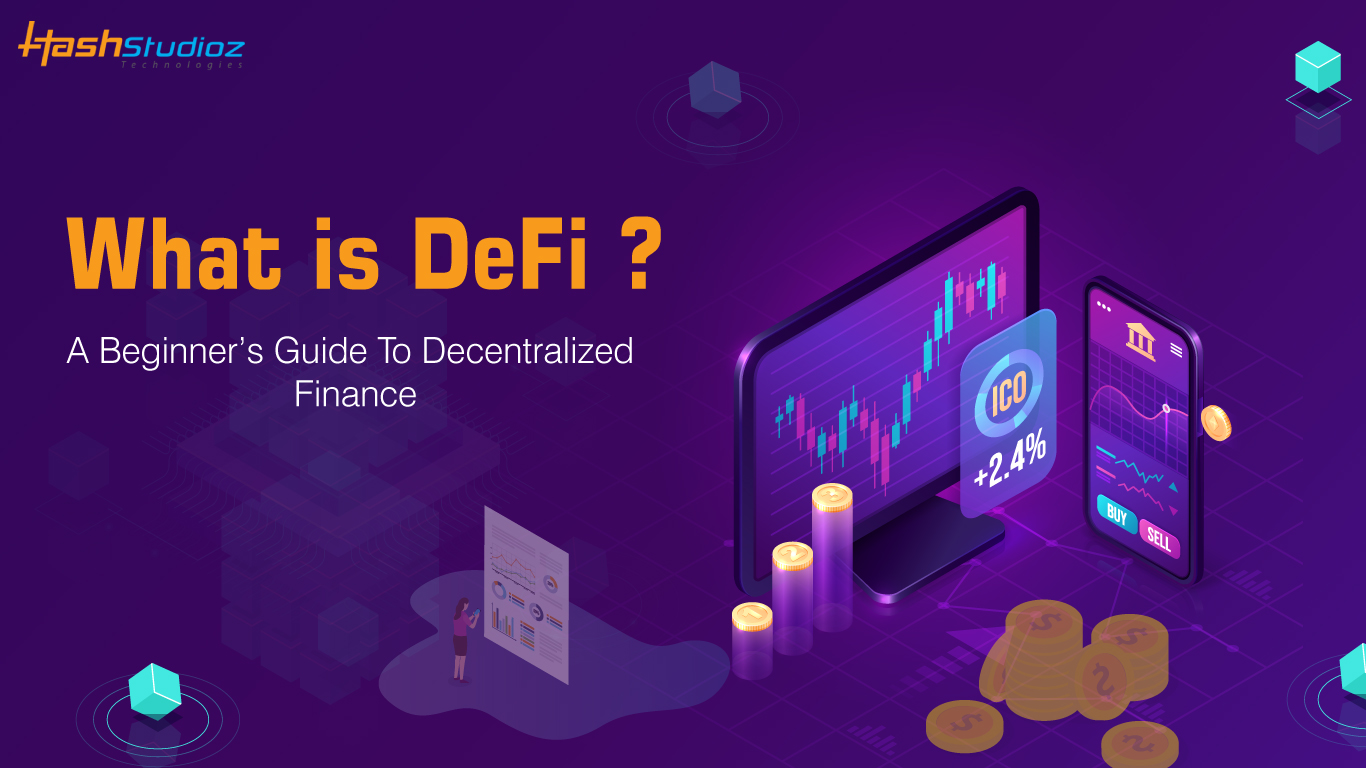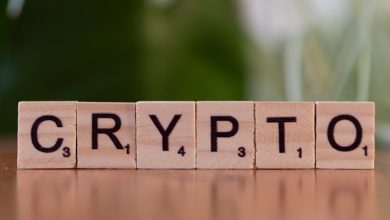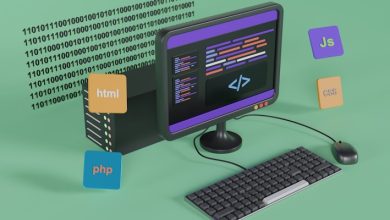What Is DeFi? A Beginner’s Guide to Decentralized Finance

- Understanding the Basics of DeFi
- Exploring the World of Decentralized Finance
- The Rise of DeFi: A Game Changer in Finance
- Key Concepts and Terminology in DeFi
- How DeFi is Revolutionizing Traditional Finance
- Getting Started with Decentralized Finance: A Step-by-Step Guide
Understanding the Basics of DeFi
Decentralized Finance, or DeFi, is a rapidly growing sector within the cryptocurrency industry that aims to revolutionize traditional financial systems by leveraging blockchain technology. To understand the basics of DeFi, it is essential to grasp the fundamental concepts that underpin this innovative approach to finance.
- Smart Contracts: DeFi platforms operate using smart contracts, which are self-executing contracts with the terms of the agreement directly written into code. These contracts automatically execute transactions when specific conditions are met, eliminating the need for intermediaries.
- Decentralized Applications (DApps): DeFi relies on decentralized applications (DApps) to provide financial services such as lending, borrowing, trading, and more. These applications run on a blockchain network, ensuring transparency, security, and immutability.
- Liquidity Pools: In DeFi, liquidity pools are used to facilitate trading by allowing users to deposit their funds into a pool that can be used for trading. Users earn fees based on their contribution to the pool, creating a decentralized and efficient market.
- Tokenization: DeFi projects often involve the tokenization of assets, where real-world assets are represented as digital tokens on a blockchain. This enables fractional ownership, increased liquidity, and the ability to trade assets 24/7.
By understanding these basic concepts, individuals can begin to explore the world of DeFi and participate in a new financial ecosystem that is open, transparent, and accessible to anyone with an internet connection. As DeFi continues to evolve and innovate, it is essential to stay informed and educated on the latest developments in this exciting space.
Exploring the World of Decentralized Finance
Exploring the world of decentralized finance (DeFi) opens up a whole new realm of possibilities for individuals looking to take control of their financial assets. DeFi operates on blockchain technology, allowing users to access financial services without the need for traditional intermediaries such as banks or brokers. This decentralized nature provides greater transparency, security, and accessibility to a wide range of financial products and services.
One of the key features of DeFi is the ability to participate in various decentralized applications (dApps) that offer services such as lending, borrowing, trading, and more. These dApps are built on smart contracts, which are self-executing contracts with the terms of the agreement directly written into code. This automation eliminates the need for intermediaries, streamlining processes and reducing costs for users.
By utilizing DeFi platforms, individuals can earn interest on their crypto assets through lending protocols, trade digital assets directly with others on decentralized exchanges, or even create and manage their own decentralized autonomous organizations (DAOs). The possibilities within the DeFi space are vast, with new projects and innovations constantly emerging to push the boundaries of what is possible in the world of decentralized finance.
The Rise of DeFi: A Game Changer in Finance
Decentralized Finance, or DeFi, has been gaining significant traction in the financial world as a game changer. DeFi refers to a system where financial products are built on blockchain technology, eliminating the need for traditional intermediaries such as banks. This shift towards decentralized systems has opened up a world of possibilities for individuals to access financial services without relying on centralized institutions.
One of the key advantages of DeFi is its ability to provide greater financial inclusion to individuals who may not have had access to traditional banking services. By leveraging blockchain technology, DeFi platforms can offer a wide range of financial products and services, including lending, borrowing, trading, and more, to anyone with an internet connection.
Furthermore, DeFi has the potential to revolutionize the way we think about finance by enabling peer-to-peer transactions without the need for a trusted third party. This not only reduces costs but also increases the speed and efficiency of transactions. With DeFi, individuals have more control over their finances and can participate in a global financial system without the limitations of traditional banking.
Key Concepts and Terminology in DeFi
Understanding the key concepts and terminology in decentralized finance (DeFi) is essential for anyone looking to navigate this rapidly growing sector. Below are some important terms to familiarize yourself with:
- Smart Contracts: Self-executing contracts with the terms of the agreement directly written into code. They automatically enforce and facilitate the exchange of assets when certain conditions are met.
- Decentralized Exchanges (DEXs): Platforms that allow users to trade cryptocurrencies directly with one another without the need for an intermediary.
- Liquidity Pools: Pools of tokens locked in a smart contract that provide liquidity for decentralized exchanges. Users can earn fees by contributing their assets to these pools.
- Yield Farming: The practice of staking or lending cryptocurrencies in order to earn rewards or interest. It involves providing liquidity to DeFi protocols in exchange for tokens.
- Decentralized Autonomous Organizations (DAOs): Organizations governed by smart contracts and run by their members, who vote on proposals and make decisions collectively.
By familiarizing yourself with these key concepts and terminology, you’ll be better equipped to understand and participate in the world of DeFi. Keep in mind that the DeFi space is constantly evolving, so staying informed and up-to-date is crucial for success.
How DeFi is Revolutionizing Traditional Finance
Decentralized Finance (DeFi) is transforming the traditional financial landscape by offering a more inclusive and accessible alternative to centralized systems. DeFi leverages blockchain technology to provide financial services without the need for intermediaries such as banks or brokers. This revolutionary approach allows users to access a wide range of financial products and services, including lending, borrowing, trading, and investing, directly from their digital wallets.
One of the key advantages of DeFi is its transparency and security. Since transactions are recorded on a public blockchain, users can verify the integrity of the system and ensure that their funds are secure. Additionally, DeFi platforms typically use smart contracts to automate processes and eliminate the need for trust between parties. This not only reduces the risk of fraud but also lowers transaction costs and speeds up the settlement process.
Furthermore, DeFi is democratizing finance by removing barriers to entry and allowing anyone with an internet connection to participate in the global economy. This is particularly beneficial for individuals in underserved regions who may not have access to traditional banking services. By using DeFi platforms, users can take control of their finances, access new investment opportunities, and earn passive income through activities such as staking and yield farming.
Getting Started with Decentralized Finance: A Step-by-Step Guide
When it comes to getting started with decentralized finance (DeFi), it’s important to follow a step-by-step guide to ensure you understand the process fully. Here are some key steps to help you navigate the world of DeFi:
- Educate Yourself: Before diving into DeFi, take the time to educate yourself on the basics. Understand what DeFi is, how it works, and the risks involved.
- Choose a Wallet: To participate in DeFi, you’ll need a crypto wallet to store your digital assets securely. Make sure to choose a wallet that is compatible with the DeFi platforms you plan to use.
- Get Some Cryptocurrency: Most DeFi platforms require you to have cryptocurrency to participate. Purchase some crypto from a reputable exchange and transfer it to your wallet.
- Explore DeFi Platforms: There are various DeFi platforms available, each offering different services such as lending, borrowing, and trading. Take the time to explore these platforms and find ones that align with your financial goals.
- Start Small: When you’re ready to start using DeFi platforms, it’s essential to start small. Test the waters with a small amount of cryptocurrency to familiarize yourself with the platform and minimize risks.
- Stay Informed: The world of DeFi is constantly evolving, with new platforms and projects emerging regularly. Stay informed by following reputable sources, joining DeFi communities, and keeping up to date with the latest trends.
By following these steps, you can begin your journey into the world of DeFi with confidence and knowledge. Remember to always do your research and proceed with caution to make the most of this exciting financial ecosystem.




